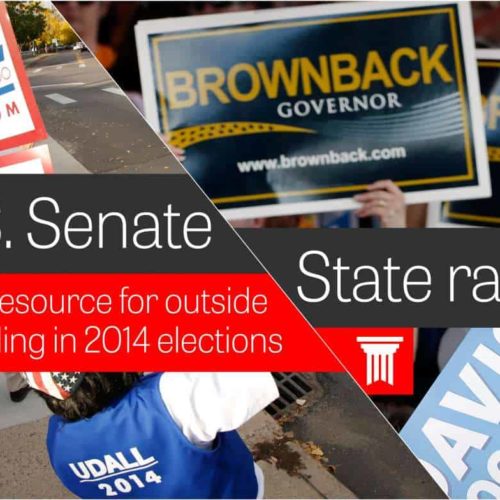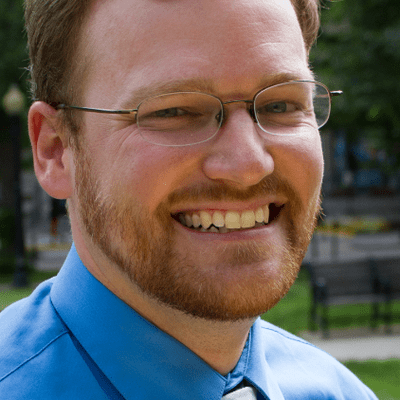Introduction
Estimated number of TV ads aired through late October targeting U.S. Senate elections: 908,000
Number of states where a Senate-focused TV ad in late October appeared, on average, at least once every two minutes: 8
Number of Senate-focused TV ads aired this cycle on KTUU-TV 2 in Anchorage, Alaska: 12,300
Stations that have aired more: 0
Percentage of all Senate-focused TV ads, on average, sponsored by outside spending groups: 38
Percentage in North Carolina’s Senate race: 55
Chance that a Senate-focused TV ad sponsored by a candidate is positive: 1 in 2
Chance that a Senate-focused TV ad sponsored by an outside group is positive: 1 in 5
Percentage of positive TV ads aired in South Dakota’s Senate race: 61
Percentage of positive TV ads aired in North Carolina’s Senate race: 18
Number of key Senate races in which “dark money” groups have aired at least 20 percent of all TV ads: 7
Number of seats Republicans must wrest from Democrats to control the Senate: 6
Pivotal Senate races where Democratic-aligned dark money groups have aired more ads than GOP ones: 0
Amount North Carolina’s two major Senate candidates have raised as of mid-October: $32 million
Amount all outside groups have told the Federal Election Commission they’ve spent on North Carolina’s Senate race: $76 million
Ratio by which Sen. Kay Hagan, D-N.C., has out-raised Republican Thom Tillis: 2.5-to-1
Hagan’s average lead in recent polls: 0.9 percent
Estimated percentage of U.S. adults who contributed at least $200 to a politician or political group: 0.28
Number of Americans who have given at least $1 million to super PACs: 42
Total amount raised by super PACs this election cycle: $600 million
Amount raised by Democratic-aligned super PAC NextGen Climate Action: $76 million
Percentage of that total attributable to billionaire environmentalist Tom Steyer: 94
Amount Koch-backed nonprofit Americans for Prosperity reportedly plans to spend: $125 million
Portion of ads in Kentucky’s Senate race aired by a single pro-McConnell nonprofit with unknown donors: 1/7
Number of states with gubernatorial elections on Nov. 4: 36
Number with competitive ones: 17
Portion of the estimated $486 million spent on TV ads in all gubernatorial races spent in those 17 contests: 2/3
Estimated amount spent in Florida’s governor race alone: $81 million
Ratio of positive-to-negative TV ads in Florida that mention Democratic gubernatorial candidate Charlie Crist: 1-to-7
Portion of ads in Kansas’ gubernatorial race that have been sponsored by dark money groups: 1/3
Amount of his own money Illinois Republican Bruce Rauner has sunk into his gubernatorial bid: $26 million
Estimated amount spent on TV ads related to statewide ballot measures in California: $75 million
Estimated time it would take to watch every TV ad for all statewide ballot measures back-to-back: 60 days
Minimum number of TV ads in state-level and U.S. Senate races that have mentioned President Barack Obama or the Obamacare health care reform law: 445,000
Minimum number of pro-Hillary Clinton super PACs registered to date with the FEC: 7
Amount raised so far by the largest of them: $10 million
Amount raised by a super PAC supporting a 2016 presidential bid by Republican neurosurgeon and Obamacare critic Ben Carson: $11 million
Portion of vote winner of Georgia’s Senate race must earn to avoid a runoff: 50
Date of the potential Georgia Senate runoff: Jan. 6, 2015
Editor’s note: The Center for Public Integrity is tracking political advertising in races for the U.S. Senate, state-level offices and state ballot measures, analyzing data from Kantar Media/CMAG, an advertising tracking firm. Many of the facts above are a result of that analysis. Other sources include the Cook Political Report, Federal Election Commission, Center for Responsive Politics and Sunlight Foundation.
Rachel Baye, Carrie Levine, Dave Levinthal, Reity O’Brien, Kytja Weir and Ben Wieder contributed to this report.
Read more in Money and Democracy
Primary Source
Koch-backed nonprofit raised $44 million in 2013
Americans for Prosperity brought in record haul for non-election year, new documents show
Primary Source
FEC hunts political ghosts on Halloween
Elections agency sends disclosure demands to hundreds of candidates — including the dead


Join the conversation
Show Comments